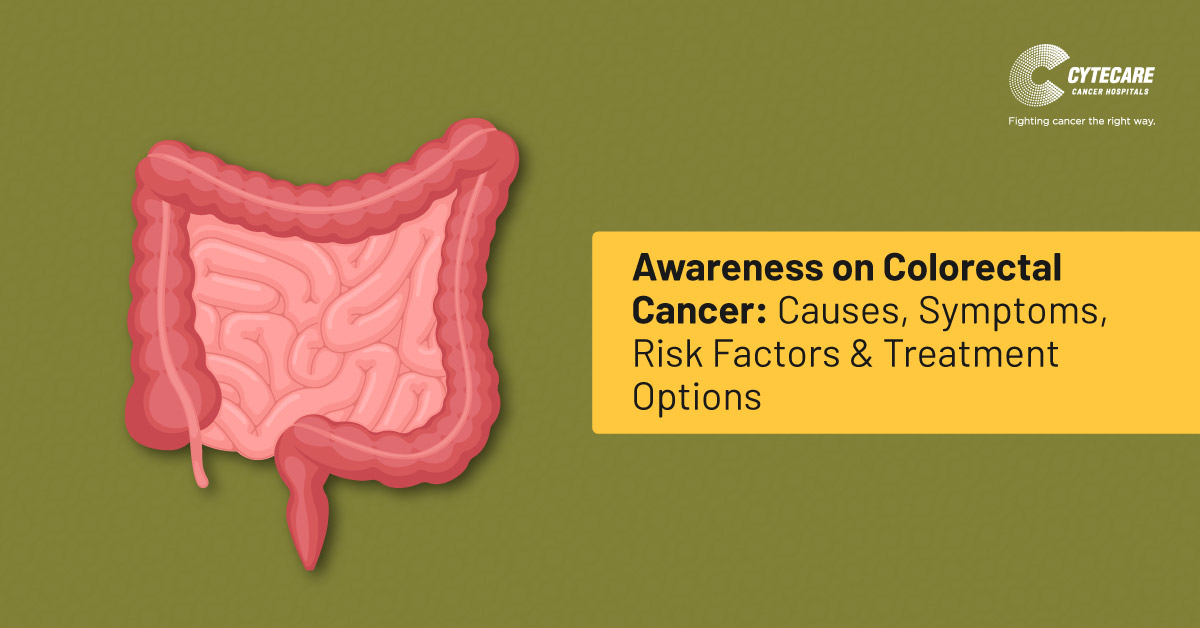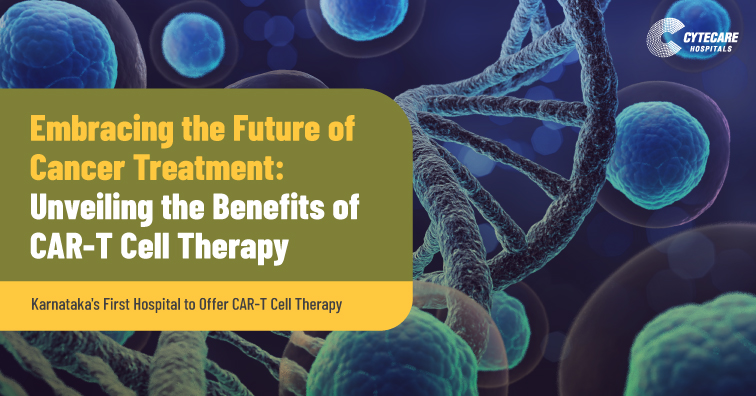Colon Cancer: Causes, Symptoms, Risk Factors & Treatment Options
Author:
Dr. Prasad Narayanan, Senior Consultant & Director – Medical Oncology (Solid Tumours)
Did you know? In the year 2020, 1,931,590 new cases of colon cancer were diagnosed in India, which contributed to 10.6% of all the new cancer cases that year. Colon cancer usually does not present any symptoms in the early stage, due to which most colon cancers are diagnosed in the later stages. It usually occurs in individuals older than 50, but anybody can develop colon cancer. The common treatment approaches for colon cancer include surgery, chemotherapy or radiation therapy.
What is colon cancer?
Colorectal cancer (colon cancer) is a type of cancer that may begin in the colon (large intestine) or the rectum (the last few inches of the large intestine). It usually begins as a small, benign (noncancerous) clump of cells on the inner wall of the colon or rectum, which is called a ‘polyp’. If polyps are not treated or removed, they can become colon or rectal cancers over time.
Causes and risk factors of colon cancer?
The exact cause of colon cancer is not known. In general, the changes in the DNA of healthy cells in the colon/rectum, cause the cells to divide and grow uncontrollably. This can lead to colon cancer.
Risk factors associated with colon cancer:
- Older age: Although colon cancer can occur at any age, many people diagnosed with colon cancer are older than 50. In recent years, the number of colon cancer cases in people younger than 50 has been increasing.
- History of intestinal polyps: If a person had noncancerous polyps they are at a higher risk of colon cancer in the future.
- Family history: If your blood relative is diagnosed with colon cancer, you are at a greater risk. If more than one family member has been diagnosed, your risk is even higher.
- Inflammatory intestinal conditions: Inflammatory conditions of the colon, such as Crohn’s disease or ulcerative colitis, can increase the risk of colon cancer.
- Low-fiber, high-fat diet: Colon cancer may be associated with diets that are low in fiber and high in calories and fat. Some studies have found that people who eat diets high in red meat and processed meat, have a higher risk of colon cancer.
Other risk factors of colon cancer:
- Obesity and sedentary lifestyles
- Smoking and alcohol consumption
- Diabetes
- History of radiation therapy
Symptoms of colon cancer?
Colon cancers do not present symptoms in all cases. The common signs of colon cancer include:
- Changes in bowel habits including diarrhoea or constipation.
- Abdominal discomfort, bloating, pain, cramps and gas.
- Blood in stools
- Bleeding from the rectum
- Fatigue, tiredness and weakness
- Unexplained weight loss
- A feeling of incomplete emptying of the bowel
How is colon cancer treated?
Treatment options for Colon Cancer are surgery, chemotherapy, radiotherapy, targeted therapy and immunotherapy. Factors that determine the outcome of treatment are age, stage, co-morbidities, left vs right colon and certain genetic changes (like RAS mutation). The good news is with biomarker testing, personalized treatment and correct treatment regimens the survival in metastatic CRC is increasing.
Here is an overview of the different treatments for Colon cancer and how they work.
Surgery
Surgery is a common treatment for many types of cancer including colon cancer. During the operation, the surgeon takes out the mass of cancerous cells (tumor) and some of the nearby tissue. Sometimes, surgery is done to relieve side effects caused by a tumor.
Chemotherapy
Chemotherapy refers to drugs used to kill infected colon cancer cells. The drugs may be given orally or into a blood vessel (IV). Different types of drugs may be given together at the same time or one after the other.
Radiation
Radiation therapy uses x-rays, particles, or radioactive seeds to kill cancer cells. Cancer cells grow and divide faster than normal cells in the body. Because radiation is most harmful to quickly growing cells, radiation therapy damages cancer cells more than normal cells. This prevents the cancer cells from growing and dividing and leads to cell death.
The two main types of radiation therapy are:
1. Targeted Therapies
Targeted therapy uses drugs to stop cancer from growing and spreading. It does this with less harm to normal cells than other treatments. Standard chemotherapy works by killing cancer cells and some normal cells. Targeted treatment zeroes in on specific targets (molecules) in cancer cells. These targets play a role in how cancer cells grow and survive. Using these targets, the drug disables the cancer cells so they cannot spread.
2. Immunotherapy
Immunotherapy is a type of cancer treatment that relies on the body’s ability to fight infection (immune system). It uses substances made by the body or in a lab to help the immune system work harder or in a more targeted way to fight cancer. This helps your body get rid of cancer cells.
or both may be used for treatment for Colon Cancer.
How does COVID-19 affect colon cancer?
Cancer patients with any type of cancer, not only colon cancer, have a higher risk of severe illness from the COVID-19 infection. This is because cancer and its treatment weaken the immune system and reduces the body’s ability to fight infections like COVID. Each patient’s treatment may vary depending on their case. Some patients may have to delay their surgery or reschedule their chemotherapy sessions.
Can I take the COVID-19 vaccine if I have colon cancer?
Cancer patients can be vaccinated against COVID-19 infection; however, it is important to talk to your doctor before you get the shot. If you have undergone cancer treatment that suppresses immunity, you may have to wait till your immune system is strong enough before you get vaccinated; otherwise, you have may to wait after getting vaccinated to receive your cancer treatment. Consult your doctor and plan when you can get vaccinated. Your doctor will also brief you about the precautionary measures one can take during the pandemic.





